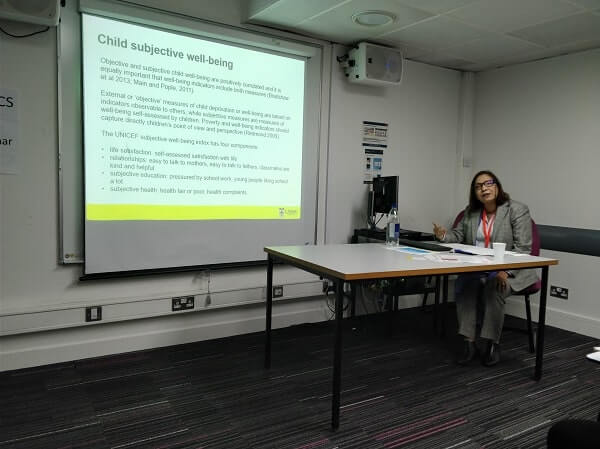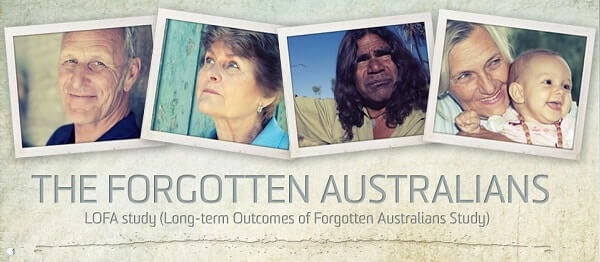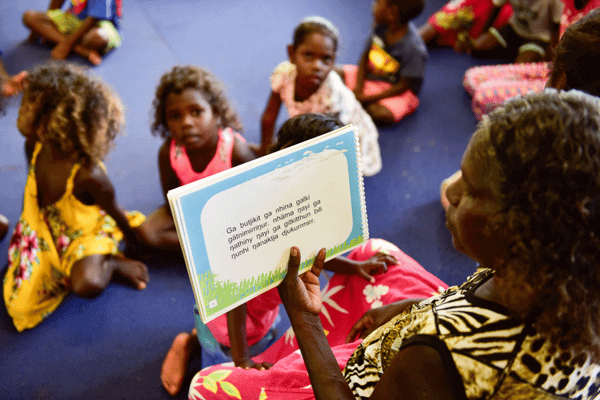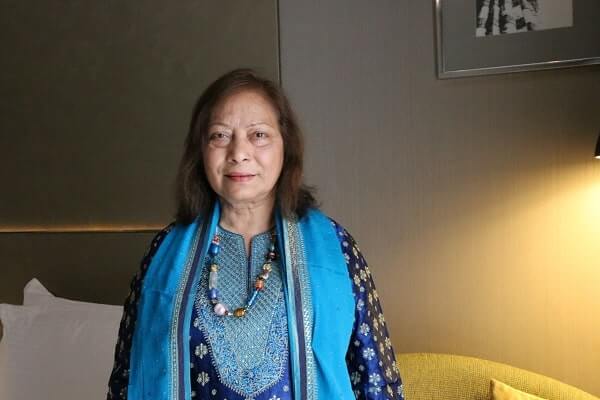UNSW’s Elizabeth Fernandez, Professor of Social Work at the School of Social Sciences, was felicitated with the AM on Australia Day.
Her career in the field of child and family services, for which she was recognised, spans 45 years in Australia. It has seen considerable contributions, especially to the lived experience and long-term outcomes of adults who as children were raised in out-of-home care. These include her extensive research on Forgotten Australians, members of the Stolen Generations, and British Child Migrants.
“My work early in India was foundational in this regard,” the Mangalore-born Chennai-raised Prof Fernandez told Indian Link.
“Soon after my master’s degree in social work at Madras University, I founded the first professional foster care service in India. It was quite a paradigm shift, to create care for vulnerable children within a family environment, allowing participating parents to undertake care responsibilities for the deprived and vulnerable in their own homes.”
Operating this service for five years at the Madras School of Social Work, she was able to create greater consciousness that congregate care was not providing the benefits of family relationships. The pilot program was later extended to Bombay, delivered by Nirmala Niketan.
She then embarked on an academic career in her alma mater Stella Maris College at Madras, becoming Head of the Department of Social Work.
She moved to Australia in 1978, and took a PhD researching children removed from their families, studying the factors that enabled them to return to their families after an episode in care.
Today she is an acknowledged authority in the field.

She is also recipient of the 2019 International Society for Child Indicators (ISCI) Award in recognition of outstanding contribution to the field of child indicators research from an international perspective.
“I feel privileged and grateful,” she said of her AM honour. “It is a validation of my work and contribution to Australia. It is also an acknowledgement of the importance of social science research and how it addresses the needs of marginalised people. Also, it recognises teaching and learning in the higher education space. Hopefully it will be noticed, and influence social policy.”
Describing her work, she said, “’Forgotten Australians’ is a term given to an estimated 500,000 non-Indigenous Australian-born children who lived in children’s homes or other forms of care, whose families experienced sheer poverty and war trauma. The ‘Stolen Generations’ are an estimated 25,000 Aboriginal children who were forcibly removed from their families and culture through policies of coercive intervention. ‘British Child Migrants’ were children exported to Australia as unaccompanied minors to be looked after in Australian children’s institutions, estimated to be 1000-1200.”

Her three-year research on these children, which ran concurrently with the Australian Government’s Royal Commission into Institutional Responses to Child Sexual Abuse, “identified physical abuse, sexual molestation, psychological abuse, educational neglect, oppressive child labour practices, and the enduring negative impacts for survivors including physical and mental health impairments, disrupted family relationships, alienation from country and culture, and compromised educational and employment outcomes. Findings from this research provided a knowledge and empirical base to argue for redress and responsive policy and services, extending learnings to contemporary care systems.”
The work is continuing, she reported. “The children are now an aging cohort, and there are concerns about aged care services available to them – whether there is sensitivity to their historical trauma. They are sceptical about being looked after in institutions again, and perhaps the answer is good support at home through home-based services.” As board member of the National Aged and Community Care Roundtable for Forgotten Australians she is deeply involved in these issues.
Another study Dr Fernandez initiated, was a ten-year longitudinal study with Barnardos Australia about children in permanent care. This research emphasised the achievement of positive outcomes for children such as resilience, and the factors that enable children to overcome their adversities.
Dr Fernandez is grateful for six large Australian Research Council (ARC) grants that supported this body of research over 35 years. The ARC have appointed her in 2011 as expert assessor of grant applications, and on the panel Excellence in Research in Australia ERA, (which identifies excellence in research in Australia’s higher education institutions through comparisons with international benchmarks.)
“The roles are a major responsibility and commitment. They give me an opportunity to be exposed to research endeavour across the country.”
In a four-decade long career, Dr Fernandez has taught students from the undergrad to the postgrad and doctoral levels, and has won the National Award for Teaching presented by the Australian Learning and Teaching Council.
“I’m also passionate about international student exchange,” Dr Fernandez revealed. “I have been sending UNSW students to universities in US, UK Canada, Israel and India. I’ve organised internships in India for social work students at the Rajagiri School of Social Work in Kerala and the Madras School of Social Work.”

Amongst the major social justice issues facing Australia facing currently, Prof Elizabeth Fernandez AM lists poverty.
“One in eight people, including one in six children, live below the poverty line, according to the latest ABS data (2019-20). In total, there are over three million (3,319,000) people in poverty, including 761,000 children. They are a priority for Australian welfare systems and policy to respond to.”
She added, “There are 46,000 children in care, a rate of 8 per 1000 children nationally. Indigenous children are disproportionately represented here – Aboriginal and Torres Strait Islander children were in out-of-home care at 30 June 2021, at a rate of 58 per 1,000. There is a vital need to address this overrepresentation through preventive and supportive services, and through addressing the entrenched socioeconomic disadvantage and other inequities they experience.”
Read More: Dr Shailja Chaturvedi, OAM: Australia Day Honours 2023





